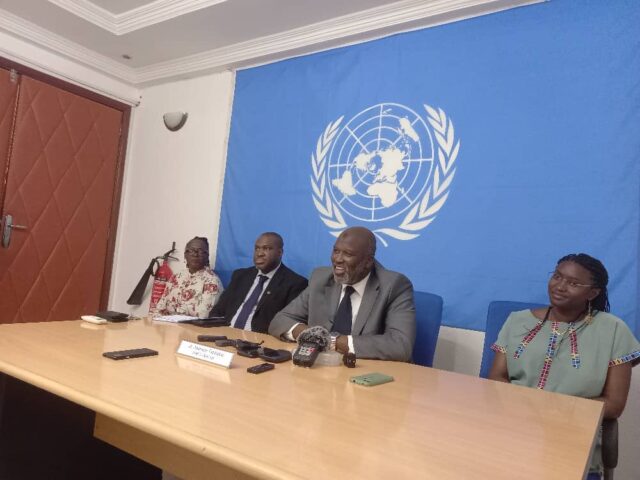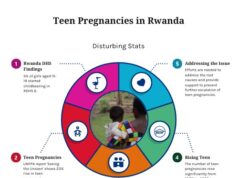
By Kelly Rwamapera
The International Residual Mechanism for Criminal Tribunals (IRMCT) will close its Kigali field office at the end of August 2024, according to Aboubacar Tambadou, the Mechanism’s registrar.
Speaking to journalists in Kigali on February 15, 2024, Tambadou said The Mechanism will close its field office in Kigali on 31 August 2024.
The former office of the International Criminal Tribunal for Rwanda (ICTR) then for the Mechanism has been operating in Kigali for 30 years.
“The security council mandate says that the mechanism will reduce its size commensurate with the reduction of activities by the ICTR branch in Arusha,” Tambadou explained.
After the trial of Felecien Kabuga and the confirmation of the death of Protais Mpiranya and Augustin Bizimana, the notorious genocide fugitives on the wanted list, the Mechanism decided to close its office.
“Following the end of Kabuga case last year, the decision was made to also close the Kigali filed office simply because the Arusha branch of the Mechanism no longer has any trials to be conducted,”
Last year the appeals and trial chambers of the ICTR concluded that Kabuga was no longer fit to stand trial and stayed the proceedings against him indefinitely.
However, Tambadou noted that the Mechanism will continue delivering other services mandated by the ICTR on matters such as the protection of witnesses but from the Arusha office in Tanzania.
“In particular, services such as the protection of the witnesses will continue to be delivered from the Arusha branch in Tanzania,” he said adding that other responsibilities will be given to the Rwanda Government or non-government entities.
“Consultations have started with the Rwandan authorities for the transition and ultimate handover of some of those responsibilities from the Mechanism,” Tambadou explained.
The ICTR indicted 93 individuals, resulting in 61 convictions, 14 acquittals, withdrew two indictments, and three individuals died before the conclusion of their trials before the ICTR.
The ICTR transferred five cases to national courts in Rwanda and France.













